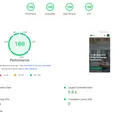When Should Small Businesses Use Google Ads?
Google Ads can be an excellent tool to drive traffic to your website and generate leads and sales for your business, but they’re not always the right fit for every small business. Knowing when to invest in ads and when to rely on your website’s organic performance can save you money and help you make smarter marketing decisions in the long run. Let’s break it down.
What are Google Ads?
Google Ads are a pay-per-click (PPC) source of advertising, whereby, as the name suggests, you pay for every click that someone makes on your ad. The more competition there is for spots, the more you will have to pay for each click.
The way it works in a practical sense is you bid on specific keywords that people put into Google, if someone searches for that keyword term, you'd come up at the top of Google's results with the word Sponsored next to your ad. This is the way to tell whether or not a business has paid for that spot, or not.
For certain businesses, Google Ads, as well as other ads (such as LinkedIn, Facebook and Pinterest to name a few) can work very well, but for most small services businesses, they are a waste of money. But how can you tell which band you fit into?
Who doesn't need Google Ads?
If you are a small, local, services-based business, then chances are you won't need Google Ads. The main problem with Google Ads is the cost - for any Google Ads campaign to return successful results, you really need to consistently put £1000s in each month, which is a huge outlay for small businesses.
The key comes when you look at the competition in your area. If you went onto Google and searched for the services you offer 'near me', and more than 5 Sponsored companies came up, then chances are you may want to look into Google Ads to get yourself to the top of Google, but only if you can commit to spending enough to outbid the competition.
If you search and see less than 5, or even better no Sponsored companies, then Google Ads will be a waste of money for you. Why spend money for the #1 spot when you can get there with a well-crafted website? You can get the results you are looking for simply by building a website that:
Loads Quickly
Google can tell when your website isn't loading quickly, this is down to how many people are quickly leaving your website (otherwise known as bouncing). 47% of people won't wait longer than two seconds for your website to load, so you need to ensure you are within this range for everyone, not just the select few with fast connections and the latest generation of devices. The way you can tell your load times is by running a Google PageSpeed test, if your Largest Contentful Paint is above 2-3 seconds, you need to get your website fixed. Click here to read another blog which outlines other parts of the Google PageSpeed test which are important to know about.
Contains The Right Keywords
Keywords are the words your customers will be searching for on Google when trying to find a business offering what you do. For a plumber in Andover, for example, users will either search for 'plumbers near me' or 'plumbers in Andover'. The best way to identify your Keywords is by using a tool such as Google Keyword Planner, which will tell you how much competition there is for certain keywords, and how often certain keywords are searched for.
Once you have identified the keywords you are aiming to rank for, you need to write the copy for your website, including those keywords throughout.
Has Been Structured Well
Google needs to be able to easily read your website, and pick out the information, so you need to ensure that you are correctly tagging each section with heading tags, (H1, H2, H3 etc.).
Heading tags are your way of showing Google the variation of your content, with H1 being the biggest and most important tag you can assign, you'll want to put your main keyword and location in here. Taking our example from earlier, you'll want to put something like 'Andover Plumbing Services' as your H1 tag. You'd then look to go more specific on some problems you solve with your H2 tags, such as 'Andover's Toilet Repair Specialists'.
This is why spreading your services over multiple pages works so well, and if you have multiple locations, you will be onto a winner too. You can have a page per location for each specific service you offer. For example, if you have 5 different services in 5 different locations, you'll want 25 pages to cover all of these, resulting in soaring Google rankings for your key locations.
Who needs Google Ads?
There are cases where you should look to invest in Google Ads, and we often recommend Google Ads to some of our clients, but only in very specific circumstances.
eCommerce
When running an eCommerce business, you need Google Ads, and other sorts of ads to drive traffic to the website. The reason for this is that eCommerce websites are much heavier in terms of technical functionality. They require large files, content, scripts and plugins to operate and allow customers to shop online, this will weigh the website down and result in it being hard to pass the Google PageSpeed and Core Web Vitals tests, which directly impact your SEO rankings.
Secondly, eCommerce websites don't often contain the same sort of content as service-based websites. making it harder to rank for specific keywords through content written on the website, especially due to how competitive the market is for each. This means that PPC ads, such as Google Ads are the most effective way of driving traffic to the website.
Businesses In Competitive Markets
When running a business in a highly competitive space, Google Ads can provide the edge needed to stand out. In industries where many competitors are fighting for the same customers, relying solely on organic search may not be enough to get noticed. If you search for your services on Google and see more than 5 Sponsored companies, it will be hard to get noticed on Google.
Google Ads allow you to position yourself at the very top of search results, often ahead of competitors who may rank higher organically. This ensures that potential customers see your business first, giving you a better chance of converting them into leads or sales. The only drawback is competition for ad space drastically increases the cost-per-click (CPC), so it’s crucial to have a well-optimised campaign to ensure you’re seeing a positive return on your investment.
Businesses With High Order Values
For businesses with high-order value products or services, Google Ads can be an effective investment in the long run. When each sale represents a significant profit margin, even a relatively high cost-per-click can be justified.
For example, if you’re a luxury travel agency selling bespoke holiday packages or a B2B software company offering enterprise solutions, the value of a single customer can often cover the cost of an entire campaign. By targeting high-intent keywords, you can ensure that your ads are seen by users who are actively looking for premium services or products, making it easier to justify the ad spend.
Final Thoughts - Google Ads, It Depends On Your Business
Deciding whether to invest in Google Ads ultimately comes down to understanding your business, your audience, and your goals. While they can be a powerful tool for driving traffic to your leads and generating leads, they are not a one-size-fits-all solution. For many small, local, service businesses, focusing on building a fast, well-structured website with targeted keywords will often the best results at a fraction of the cost.
On the other hand, if you’re operating in a competitive market, running an eCommerce store, or selling high-value products or services, Google Ads can offer the visibility needed to stay ahead of the competition, provided you have the budget and expertise to run them effectively.
The key is to make an informed decision that aligns with your business priorities and resources. Still not sure what is the best route for you? One of our team is on hand to help, book a free consultation call here.







